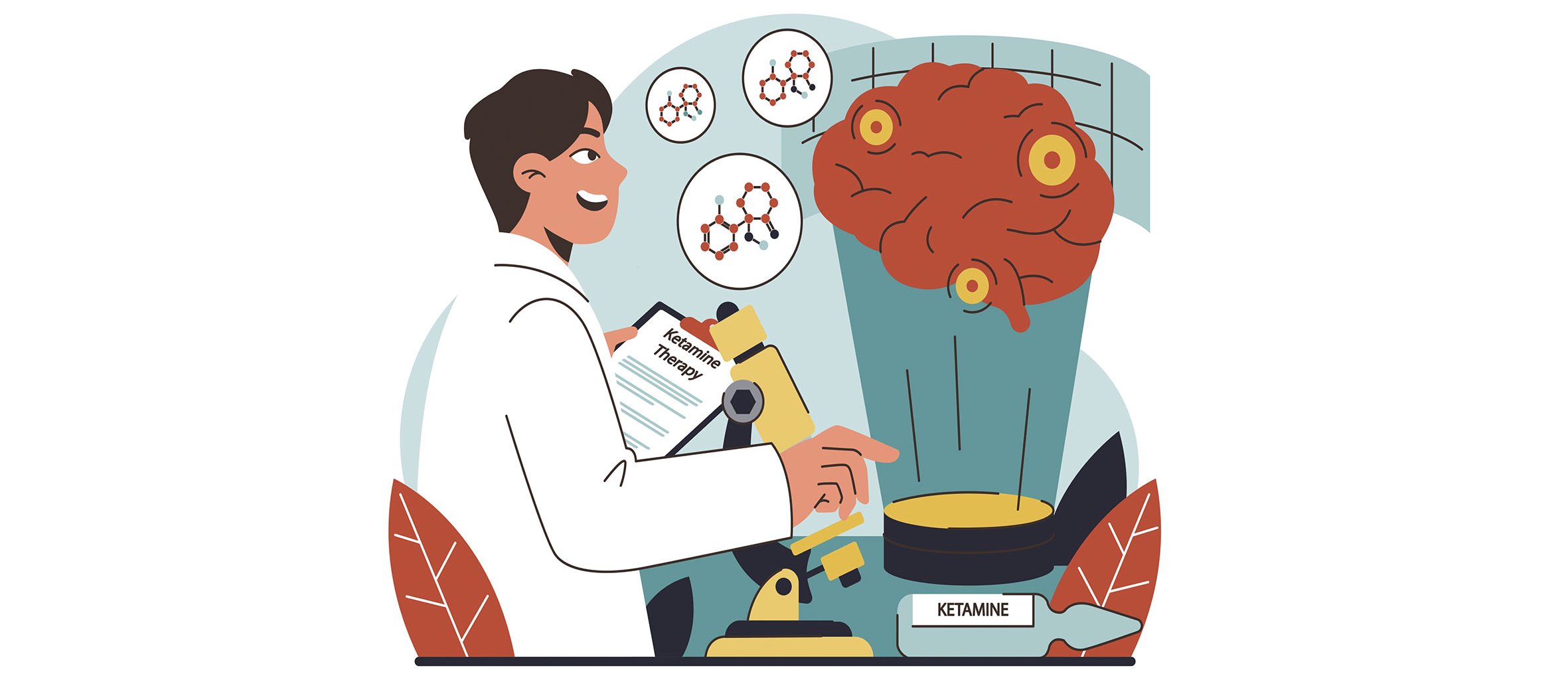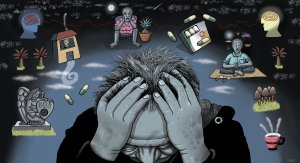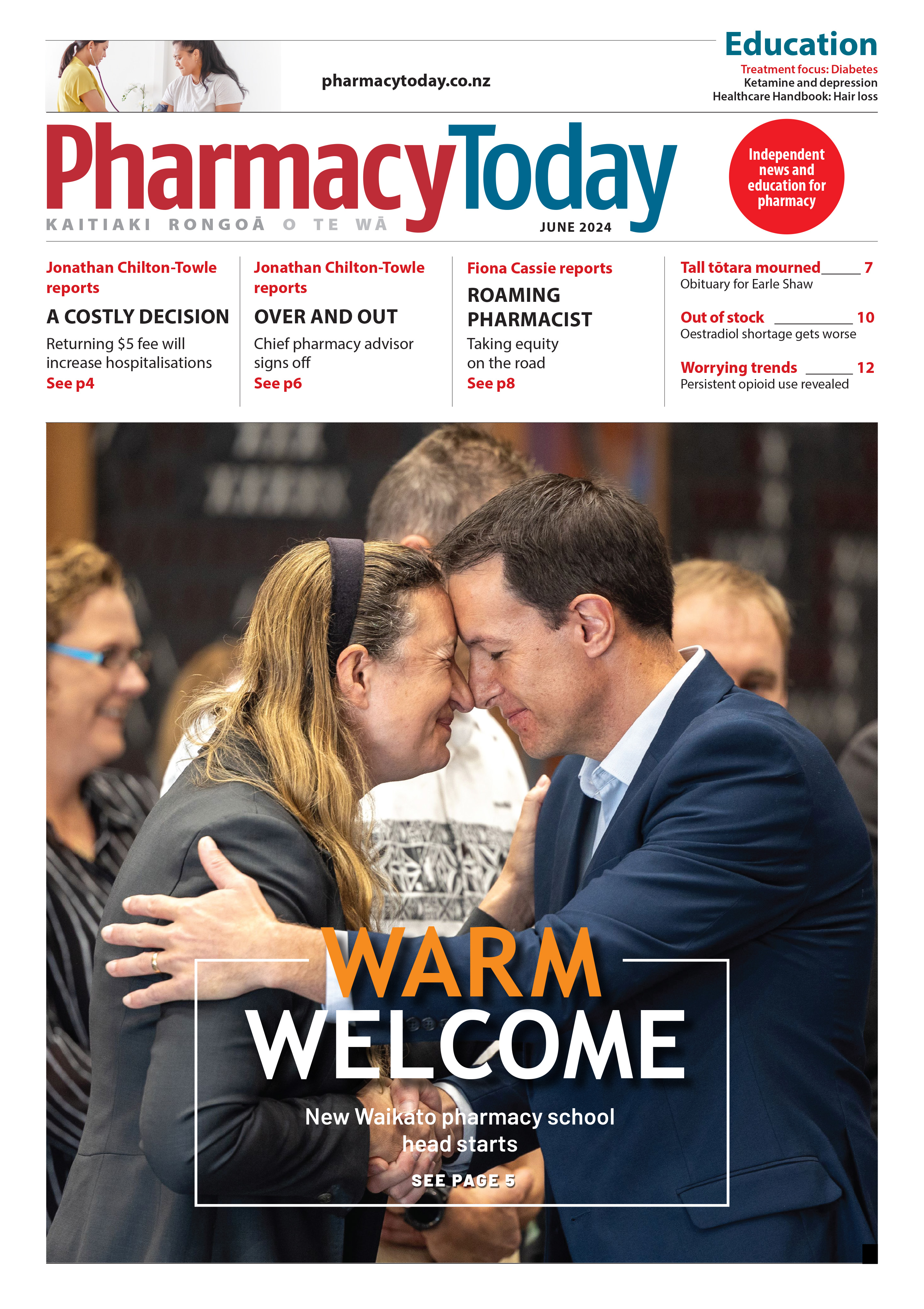This article, written by Sidhesh Phaldessai, provides an overview of geriatric psychopharmacology, including the epidemiology of mental health disorders in the older population, the physiological changes that occur with ageing and their impact on pharmacokinetics and pharmacodynamics, and the use of psychotropic medications in older adults
The use of ketamine and esketamine in treatment-resistant depression
The use of ketamine and esketamine in treatment-resistant depression

Nataly Martini explores the pharmacology of ketamine and esketamine, their clinical applications, and the critical role pharmacists play in ensuring these treatments are used safely and effectively
1. Herrman H, Kieling C, McGorry P, et al. Reducing the global burden of depression: a Lancet-World Psychiatric Association Commission. Lancet 2019;393(10189):e42–43.
2. Malhi GS, Bell E, Singh AB, et al. The 2020 Royal Australian and New Zealand College of Psychiatrists clinical practice guidelines for mood disorders: Major depression summary. Bipolar Disord 2020;22(8):788–804.
3. Keks N, Hope J, Keogh S. Switching and stopping antidepressants. Aust Prescr 2016;39(3):76–83.
4. Walsh Z, Mollaahmetoglu OM, Rootman J, et al. Ketamine for the treatment of mental health and substance use disorders: comprehensive systematic review. BJPsych Open 2021;8(1):e19.
5. Beaglehole B, Foulds J, Mulder R. The rise (and possible fall) of ketamine treatment in New Zealand. N Z Med J 2023;136(1581):7–9.
6. McIntyre RS, Rosenblat JD, Nemeroff CB, et al. Synthesizing the evidence for ketamine and esketamine in treatment-resistant depression: An international expert opinion on the available evidence and implementation. Am J Psychiatry 2021;178(5):383–99.
7. Anand A, Mathew SJ, Sanacora G, et al. Ketamine versus ECT for nonpsychotic treatment-resistant major depression. N Engl J Med 2023;388(25):2315–25.
8. Rhee TG, Shim SR, Forester BP, et al. Efficacy and safety of ketamine vs electroconvulsive therapy among patients with major depressive episode: A systematic review and meta-analysis. JAMA Psychiatry 2022;79(12):1162–72.
9. Papakostas GI, Salloum NC, Hock RS, et al. Efficacy of esketamine augmentation in major depressive disorder: A meta-analysis. J Clin Psychiatry 2020;81(4):19r12889.
10. Canuso CM, Singh JB, Fedgchin M, et al. Efficacy and safety of intranasal esketamine for the rapid reduction of symptoms of depression and suicidality in patients at imminent risk for suicide: Results of a double-blind, randomized, placebo-controlled study. Am J Psychiatry 2018;175(7):620–30.
11. The Royal Australian and New Zealand College of Psychiatrists (RANZCP). Use of ketamine in psychiatric practice. Melbourne, Aus: RANZCP; 2022.
12. Glue P, Russell B, Medlicott NJ. Influence of formulation and route of administration on ketamine's safety and tolerability: systematic review. Eur J Clin Pharmacol 2021;77(5):671–76.
13. Wajs E, Aluisio L, Holder R, et al. Esketamine nasal spray plus oral antidepressant in patients with treatment-resistant depression: Assessment of long-term safety in a phase 3, open-label study (SUSTAIN-2). J Clin Psychiatry 2020;81(3):19m12891.
14. Ochs-Ross R, Daly EJ, Zhang Y, et al. Efficacy and safety of esketamine nasal spray plus an oral antidepressant in elderly patients with treatment-resistant depression–TRANSFORM-3. Am J Geriatr Psychiatry 2020;28(2):121–41.
15. Kurosawa K, Shibuya M, Shimizu H, Pérez-Ruixo C. Evaluation of ethnicity effect on intranasal esketamine pharmacokinetics by population pharmacokinetic modeling using data from a Japanese phase 2b study. Clin Pharmacol Drug Dev 2023;12(4):397–406.
16. Bahji A, Vazquez GH, Zarate CA Jr. Comparative efficacy of racemic ketamine and esketamine for depression: A systematic review and meta-analysis. J Affect Disord 2021;278:542–55.





